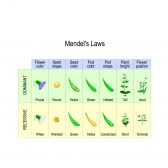third-order kinetics
(Science: pharmacology) A term describing the reaction rate of a chemical reaction in which the rate is proportional to the product of the concentrations (in moles) of three of the reactants, the product of the molar concentration of one reactant and the square of the molar concentration of another reactant, or the cube of the molar concentration of one of the reactants.
Such a reaction might have an equation like rate = k[A][B][C] or rate = [A][B]2 or rate = where k is the reaction rate constant, [A] is the concentration of reactant A, [B] is the concentration of reactant B, and [C] is the concentration of reactant C.
Dictionary > Third-order kinetics
You will also like...

The Origins of Life
This tutorial digs into the past to investigate the origins of life. The section is split into geological periods in the..

Plant Cells vs. Animal Cells
Plant cells have plastids essential in photosynthesis. They also have an additional layer called cell wall on their cell..

Human Reproduction
Humans are capable of only one mode of reproduction, i.e. sexual reproduction. Haploid sex cells (gametes) are produced ..

Early Mammals on Earth
The Earth's ecosphere was rapidly changing and throwing up a wide range of ecological niches that new adaptive organisms..

Mendel’s Law & Mendelian Genetics
One of Mendel’s law of inheritance is the “law of dominance”. Read this tutorial to know more about this form of i..

The Homo Species
The evolution of the species of the genus "Homo" led to the emergence of modern humans. Find out more about human evolut..

